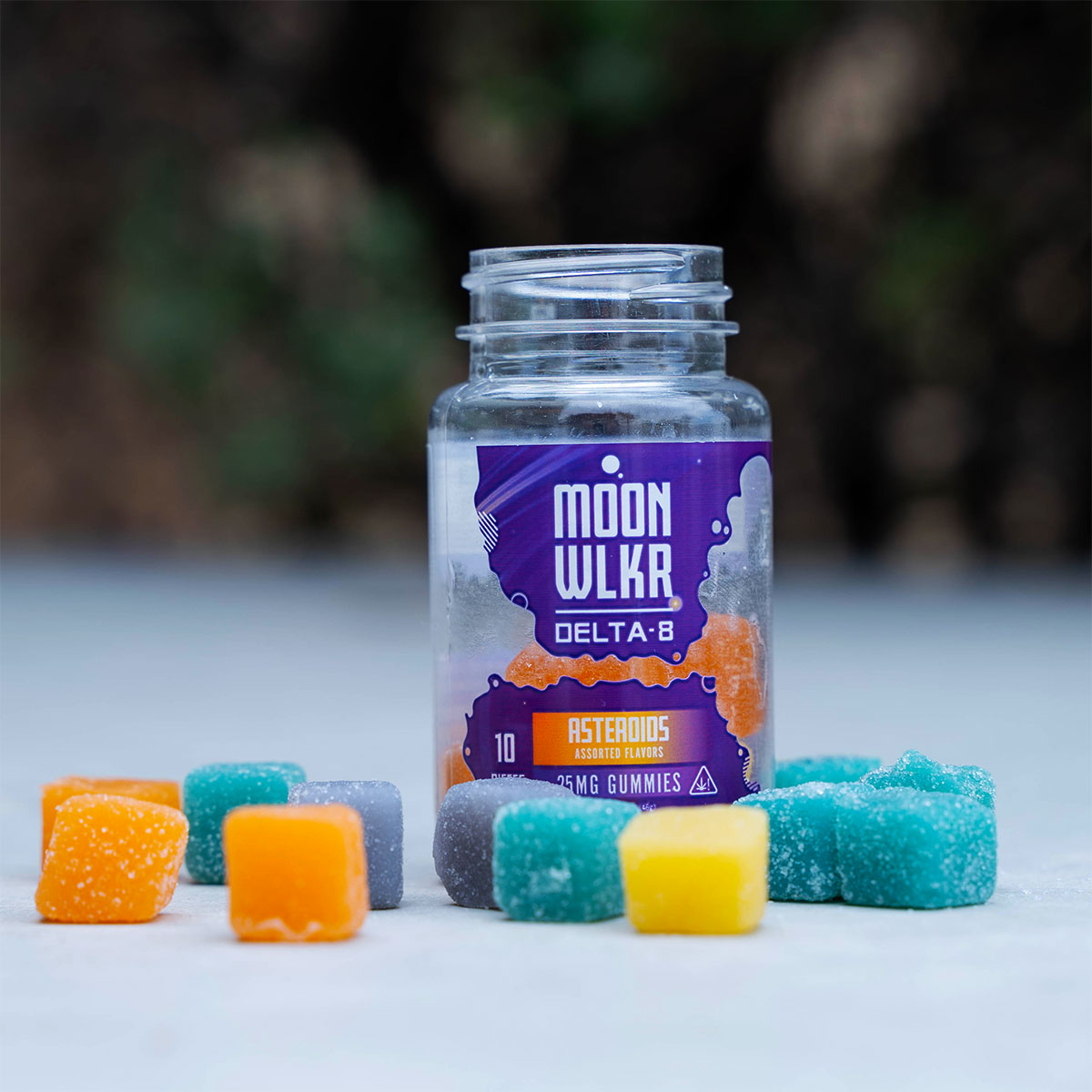Delta 8 THC gummies are popular cannabis products that are gaining attention not just for their psychoactive effects but also for their potential health benefits, including the possibility of lowering cholesterol.
Cholesterol, a fatty substance in the blood, can build up and cause health issues like heart disease if levels become too high. Research suggests that Delta 8 THC may influence metabolism and fat processing in the body, potentially helping to reduce cholesterol levels.
These gummies deliver Delta 8 THC in a manageable, enjoyable form, making it easy for users to incorporate them into their daily routine. While studies are still preliminary, the anti-inflammatory properties of Delta 8 may also play a role in health, suggesting a multi-faceted approach to managing cholesterol.
This introductory exploration into D8 gummies highlights their emerging role in health and wellness, particularly cardiovascular care.
Table of Contents
Does Delta 8 Raise Cholesterol?
Currently, no scientific evidence suggests that Delta 8 directly raises cholesterol levels. Research on cannabinoids like Delta 8 gummies primarily focuses on their effects on pain, anxiety, and neuroprotection rather than their impact on cholesterol levels.
Cannabinoids interact with the body’s endocannabinoid system, influencing various physiological processes. Still, the effects on cholesterol and other lipid metabolism must be well-documented, particularly for Delta 8 THC. The majority of studies on cannabinoids and cholesterol have looked at CBD (cannabidiol) and THC (tetrahydrocannabinol), often with mixed results.
For those concerned about cholesterol, it’s essential to consider overall lifestyle factors such as diet, exercise, and smoking, which have a more established connection with cholesterol levels. If you have specific health concerns, consulting with a healthcare provider is advisable, especially when considering any supplements or changes in your regimen, including the use of Delta 8 THC gummies and their other products.
How Long Does It Take To Lower Cholesterol?
Lowering cholesterol levels typically requires a combination of lifestyle changes and, in some cases, medication. The time it takes to see a significant reduction in cholesterol can vary based on several factors, including the extent of changes made, individual health conditions, and the initial cholesterol levels. Here’s a general overview:
Diet and Exercise: Implementing a diet low in saturated fats and cholesterol and regular physical activity can begin to impact cholesterol levels within a few weeks to three months. Dietary changes such as increasing fiber intake and reducing fatty foods are particularly effective.
Medication: If prescribed, cholesterol-lowering medications like statins can start working within four to six weeks. These medications are often used when lifestyle changes alone do not sufficiently lower cholesterol levels.
Monitoring and Adjustment: It’s common for doctors to re-evaluate cholesterol levels after about three to six months of treatment or lifestyle adjustments to assess progress and make necessary changes to the plan.
Are Edibles Better For Your Heart?
The question of whether edibles are better for your heart, particularly in the context of cannabis products like THC vape or CBD edibles, is complex and depends on various factors, including the active compounds and the user’s overall health profile.
Pros of Cannabis Edibles for Heart Health:
- No Smoke Inhalation: Unlike smoking cannabis, consuming edibles eliminates exposure to tar and carcinogens produced by combustion. This is beneficial because smoking any substance can increase heart disease risk due to the impact on lung health and oxygenation.
- Controlled Dosage: Edibles can provide more precise dosing options, which can be beneficial for those using cannabis medically, including for conditions like stress and anxiety that can impact heart health. Lower, controlled doses might mitigate the potential cardiovascular risks associated with higher doses of THC.
Cons and Cautions:
- Delayed Onset: Edibles take longer to produce effects because they must be digested. This delay can lead some users to consume higher amounts than intended, which might increase the risk of cardiovascular effects such as increased heart rate and blood pressure.
- Variable Effects: The effects of THC, including on the cardiovascular system, are dose-dependent and can be unpredictable based on individual metabolism. High doses might exacerbate heart conditions or interact with cardiovascular medications.
CBD-Specific Benefits:
- CBD Edibles: Unlike THC, CBD is non-psychoactive and has been shown to have potential cardiovascular benefits, such as reducing blood pressure and having anti-inflammatory properties. These can benefit heart health, especially in reducing stress and managing anxiety.
Conclusion: Is It Bad To Take Delta 8 Everyday?
While there is no direct evidence that it raises cholesterol levels, the overall impact of Delta 8 THC gummies on lipid metabolism and cardiovascular health is still not all understood.
Focusing on proven factors such as diet, exercise, and overall lifestyle choices is essential for those concerned about managing cholesterol.
When considering the daily use of Delta 8 THC, it’s necessary to be aware of its potential but not fully understood cardiovascular effects. Users should closely monitor their response to the substance, adjusting usage as required based on personal experience rather than medical advice.
Additionally, while edibles like Delta 8 can avoid the risks associated with smoking, their consumption must be managed carefully. The delayed effects of edibles require users to be mindful of dosage to prevent excessive intake, which could inadvertently affect cardiovascular health.
